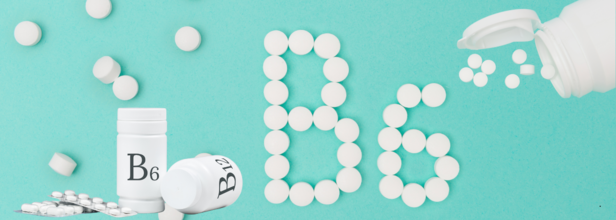- Health Conditions A-Z
- Health & Wellness
- Nutrition
- Fitness
- Health News
- Ayurveda
- Videos
- Medicine A-Z
- Parenting
- Web Stories
Ghee Coffee or Ghee Tea: Exploring Health Benefits of Ghee-Infused Beverages

ghee (credit: canva)
As awareness spreads about the detrimental effects of oils on health, the focus has shifted to ghee. Not only is it used for cooking vegetables, but it is also being added to beverages. While adding a spoonful of ghee to your morning beverage can offer a range of health benefits, choosing between ghee tea and ghee coffee may come down to your personal health goals and preferences.
Understanding The Basics
Ghee Tea: This drink, inspired by Tibetan butter tea, combines tea with a spoonful of ghee (clarified butter). The result is a creamy, rich beverage that boasts several health benefits. Research published in the *Journal of Ayurveda and Integrative Medicine* links ghee to improved cardiovascular health, wound healing, and skin health.Ghee Coffee: A variation of bulletproof coffee, ghee coffee blends coffee with ghee and sometimes coconut or MCT oil. Studies featured in *Current Developments in Nutrition* suggest that high-fat coffee beverages like ghee coffee can enhance satisfaction and cognitive function.
Benefits of Ghee Tea
1. Improves Digestion: Ghee's healthy fats and vitamins, combined with the antioxidants from tea, can promote digestive health and overall well-being.2. Promotes Bowel Movement: The butyrate in ghee supports gut health and may help with regular bowel movements. Adding milk can further aid in preventing constipation.
3. Alleviates Period Pain: Ghee’s anti-inflammatory properties may reduce menstrual cramps and help regulate menstrual cycles.
4. Enhances Cholesterol Levels: Butyric acid in ghee helps increase good cholesterol and reduce bad cholesterol, improving overall cholesterol levels.
5. Acts as a Natural Lubricant: Ghee nourishes bones, joints, and muscles, potentially alleviating arthritis symptoms. Tea, especially black tea, can also provide anti-inflammatory benefits.
Benefits of Ghee Coffee
1. Sustained Energy: The healthy fats in ghee slow down caffeine absorption, providing a steady release of energy without the typical caffeine crash.2. Improved Mental Clarity: Ghee’s saturated fats, combined with caffeine, may enhance alertness and concentration.
3. Supports Gut Health: Ghee contains butyric acid, which can help reduce inflammation and support gut health.
4. Promotes Satiety: The fats in ghee can increase feelings of fullness, potentially aiding in weight management by curbing cravings.
Ghee Coffee vs. Ghee Tea: Which is Healthier?
The choice between Ghee Coffee and Ghee tea depends upon what benefit you want from it. Ghee Coffee is ideal for those looking for sustained energy and improved focus. It may also assist in weight management due to its appetite-suppressing effects. On the other hand, ghee tea is better suited for digestive health and hydration. Also, it supports gut function and may reduce inflammation.Sweet But Risky? Common Sugar Substitute May Harm Brain Cells, Study Finds

Credits: Canva
University of Colorado Boulder's new study found that erythritol, which is a widely used sweetener found in countless diet and specialty food items could carry unexpected health risks. These sweeteners are found in low-carb ice creams and keto-friendly protein snacks, to 'sugar-free' speciality.
The study was published in the Journal of Applied Physiology.
What Did The Study Find?
The study found that erythritol could affect brain cells in ways which could increase the likelihood of stroke.
“Our study adds to the evidence suggesting that non-nutritive sweeteners that have generally been purported to be safe, may not come without negative health consequences,” said senior author Christopher DeSouza, professor of integrative physiology and director of the Integrative Vascular Biology Lab.
What Is Erythritol?
Erythritol, a type of sugar alcohol approved by the Food and Drug Administration in 2001, is usually produced by fermenting corn. It's widely used in hundreds of products thanks to its appeal: it has almost no calories, offers about 80% of the sweetness of regular sugar, and causes minimal spikes in blood sugar or insulin. These qualities make it especially attractive to those watching their weight, following low-carb diets, or managing diabetes.
However, new research is beginning to highlight potential health risks linked to its use.
What Kind of Health Threats Does Erythritol Pose?
A recent study of 4,000 people across the U.S. and Europe found something concerning: those with higher levels of erythritol in their blood were significantly more likely to suffer a heart attack or stroke within three years.
To dig deeper into why this might happen, researchers led by DeSouza and graduate student Auburn Berry ran lab tests on cells that line the blood vessels in the brain. They exposed these cells to an amount of erythritol similar to what you'd get in a standard sugar-free drink.
What they saw was troubling.
The cells produced much less nitric oxide, a key molecule that helps blood vessels relax and widen, and more endothelin-1, which has the opposite effect—tightening blood vessels. On top of that, when the cells were exposed to thrombin (a clot-forming substance), they struggled to produce enough of the natural clot-buster t-PA. The erythritol-treated cells also pumped out more reactive oxygen species—unstable molecules known as free radicals, which can inflame tissues and damage cells over time.
Why It Might Raise Stroke Risk
“Big picture, if your blood vessels are tighter and your body isn’t breaking down clots efficiently, your stroke risk goes up,” Berry explained. “Our study shows not just that this could happen—but how erythritol might actually be contributing to it.”
It’s worth noting that the study used just one serving's worth of erythritol. So, if someone consumes several sugar-free products a day, the potential risk could be higher.
That said, the researchers also stress that this was a lab-based study using cells, not people. More human studies are needed before drawing firm conclusions.
Still, DeSouza suggests being cautious: check product labels for erythritol or terms like “sugar alcohol.”
“Considering both the earlier population study and our lab findings,” he said, “it’s wise for people to keep an eye on how much of these non-nutritive sweeteners they’re consuming.”
Over-the-Counter Vitamin B6 Linked To Nerve Damage: Hundreds Join Class Action In Australia

Credits: Canva
Blackmores Vitamin B6 Case: "I first reported numb hands and feet to doctors in 2012, when I was taking vitamin B6 in various supplements. In 2019, I suffered a paralysed vocal cord, which affects my ability to speak and swallow liquid. I was teaching English at TAFE and I basically had to give up my job because I could not speak. I had other symptoms, like stabbing in my feet, numbness, headaches, and gut pain. I have seen dozens of specialists over he past 10 years, trying to get a diagnosis on my "mystery illness"," shares 61-year-old, Penny Thompson from Wollongong to The Sydney Morning Herald.
There are many others like her. The reason behind all this is the over-the-counter vitamins. The Sydney Morning Herald reports that many patients developed twitches, migraines, nerve damages, and other neurological symptom after they took over-the-counter supplements. These are the same patients who have now "joined a class action investigation against wellness giant Blackmores", for selling vitamin "linked to a growing number of toxicity cases".
What Is Happening With OTC Vitamins?
In May, Melbourne injury law firm Polaris announced that it was pursuing a class action investigation against Blackmores, an Australian health supplement company, on behalf of anyone who has suffered injuries after taking its supplements. The reason being, it contains "higher than recommended levels of vitamin B6".
The law firm's principal, Nick Mann, said that they have more than 300 inquiries joining the potential suit. Majority of these respondents have suffered injuries after consuming Blackmore's supplements that contain vitamin B6.
“One of the things that surprised me has been the number of people who’ve told us about really significant and ongoing impacts of B6 toxicity long after they’ve ceased taking the supplement,” Mann told The Sydney Morning Herald. “The impacts on them have been permanent and ongoing.”
However, Blackmores spokesperson told the media outlet that all its products including those that contain vitamin B6 are "in strict accordance" with Therapeutic Goods Administration's (TGA), a regulatory agency of the Australian Government as part of its Department of Health, Disability and Ageing, regulatory requirement.
Is Vitamin B6 Toxic?
Vitamin B6 is considered toxic when consumed in high doses over a long period. However, the TGA notes that there was no scientific consensus on a 'safe' threshold.
The TGA notes: "Taking vitamin B6 even at low doses can cause peripheral neuropathy but people are more likely to get it if they are taking more than one supplement."
A 2022 report by the TGA notes that it has receieved over 30 reports of peripheral neuropathy, which are related to products containing vitamin B6.
The Netherlands Pharmacovigilance Centre Lareb has also previously reported on nerve damage caused by the use of nutritional supplements that contain vitamin B6.
As per Lareb's 2024 report, "A healthy and varied diet will provide most people with enough vitamin B6. Yet many people take nutritional supplements with vitamin B6 in addition to their regular diet. Excessive intake of vitamin B6 over a long period of time can sometimes lead to damage to nerves in arms and/or legs. Symptoms are tingling, numbness or pain in hands and/or feet."
What Is The Recommended Levels of Vitamin B6?
Lareb notes that the recommended dietary allowance for adults is 1.5 milligram of vitamin B6 per day. Whereas, the TGA notes that maximum permitted daily dose in individual products has been reduced to 100mg for adults and even less for children. However, peripheral neuropathy can occur at very low doses, which could be less than 50mg.
This is not just the case with vitamin B6, but consuming any vitamin without being prescribed could lead to nutrient overdose and cause blood clots, and/or infections. Dr Shrey Kumar Srivastav, Senior Consultant, Internal Medicine at Sharda Hospital says, "frequent or routine use can cause vitamin toxicity or electrolyte imbalances". While some people opt for oral supplements, others opt for IV supplements. However, Dr Prashant Sinha, Head of Emergency and Internal Medicine at PSRI Hospital, Delhi, says that for a healthy person with no diagnosed deficiency, there is generally no medical reason to receive IV supplements regularly. "Getting them too frequently can lead to nutrient overload or dependency, where the body becomes less efficient at natural nutrient absorption," he points out.
ALSO READ: The Truth About IV Drips: Are They Better Than Food Or Supplements?
Symptoms To Look Out For:
- Nausea
- Hypersensitivity
- Nerve damage could lead to tingling, burning, and numbness throughout the body
Could Eggs Help Ward Off Alzheimer’s? Here is What the Study Reveals

A recent study suggests that eating eggs may be linked to a lower risk of developing Alzheimer’s disease. The study, published in The Journal of Nutrition, found that individuals who consumed eggs regularly had significantly reduced levels of the brain protein buildup typically associated with the condition.
The researchers went beyond just surveys and dietary recall; they examined brain tissue from autopsies to get a clearer picture of what was going on inside. And what they found was surprising. Individuals who ate eggs more frequently had less of the sticky, toxic protein buildup in the brain, the kind typically associated with Alzheimer’s. In fact, those who ate just one egg a week had a 47 per cent lower risk of developing the disease compared to people who rarely touched the yolk.
Nutrient Rich
This might come as a shock to those who still see eggs as little cholesterol bombs. But scientists are now pointing fingers at something far more benevolent than blameworthy: eggs’ high choline and omega-3 content.
Choline is an essential nutrient that plays a crucial role in brain development and memory function. It also helps form acetylcholine, a neurotransmitter involved in mood, muscle control, and cognitive performance. Omega-3 fatty acids, meanwhile, have long been praised for their brain-protective properties, including reducing inflammation and supporting cell membrane health.
Together, these nutrients could be helping to keep those harmful proteins from building up in the brain, the very proteins that leave a damaging mark in Alzheimer’s patients.
From Kitchen Staple to Cognitive Support
Eggs have been a part of the human diet for millennia. They are easy to prepare, affordable, and versatile enough to land on breakfast, lunch, or dinner plates. This latest research invites us to reconsider eggs not just as a protein-packed breakfast option but as a strategic ally in long-term brain health.
A Word of Caution
It is important to note that this was an observational study. It shows an association, not cause and effect. But it does add weight to the growing body of research that supports the role of specific nutrients in cognitive protection.
The study’s authors emphasise that more work needs to be done to fully understand the mechanisms at play. Still, they suggest that incorporating eggs into a balanced diet could be a simple and accessible way to help support brain function as we age.
© 2024 Bennett, Coleman & Company Limited

